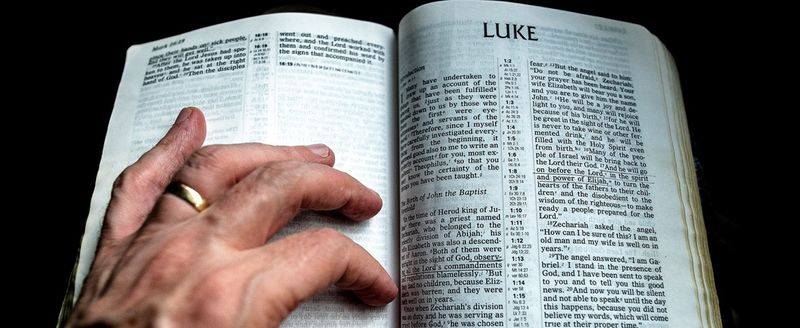Jürgen Moltmann captured the heart of the church’s ethic when he wrote, “the Christian community does not live from itself and for itself, but from the sovereignty of the risen Lord and for the coming sovereignty of him who has conquered death and is bringing life, righteousness and the kingdom of God”.[1]
This forward-looking perspective celebrated in the approaching season of Advent isn’t limited by a season but is characteristic of our faith. As Christians, we are people of expectation. This is why we pray, “Merciful God, who sent your messengers the prophets to preach repentance and prepare the way for our salvation: Give us grace to heed their warnings and forsake our sins, that we may greet with joy the coming of Jesus Christ our Redeemer” (BCP 1975).[2] This prayer reveals the character of the Christian faith. It’s a storied faith with a past, a present, and a future. As Christians, we stand between the great events of the past and the future. We look back in faith upon the coming of the Messiah, his ministry of liberation, miracles, care for the poor, and the preaching of the kingdom of God, and what the crucifixion, resurrection and the pouring out of the Holy Spirit upon his people. We look forward into the future for his second coming and all that it entails: the renewal of the world and his breaking the power of darkness, sin’s hold over the world, Satan’s grip over society, and death’s certain defeat.
In Luke 2:22–35, we have the famous song of Simeon, what the Anglican Prayer book calls Nunc Dimittis. In the Anglican tradition, this liturgical text speaks “of a sense of completion and fulfillment which culminates the movement from the praise of” another liturgical text, O Gladsome Light, “to the thanksgiving for God’s activity in all creation and in our lives during the past day”[3]. In the Bible this forward looking, hope filled song of Simeon that gives a sense of “completion and fulfillment”[4] to Simeon’s own life, reverberates in the air at the beginning of Jesus’s life, while he was still a child, at the advent of a coming Kingdom of God that would liberate the people of Israel once again. It was a song of expectation, embodying a Messianic hope, filled with faith and anticipation, reflecting the longing of all God’s people who wait for his deliverance from the powers of sin and death. It’s a song of confidence testifying that, having seen the salvation of God, we can die in peace because we know that death is not the end.
As Jesus’ family was coming to the temple for “purification according to the law of Moses,” intending to present Jesus to the Lord and offer up the offering of the poor, “a pair of turtle doves, or young pigeons,” Simeon, a “righteous and devout man, waiting for the comfort of Israel” promised in Isaiah 40, recognized that this child from a poor, obscure family was the God of Israel, the king who had come to redeem his people (Luke 2:22–26). Luke tells us at the sight of Jesus, “he took him up into his arms and blessed God” and he sang:
Lord, now you are letting your servant depart in peace,
according to your word;
for my eyes have seen your salvation
that you have prepared in the presence of all peoples,
a light for revelation to the Gentiles,
and for glory to your people Israel.” (Luke 2:28–32)
In response to this wonderful declaration, Mary and Joseph marveled (v.33). A poor family would have hopes and dreams for their firstborn son—every parent wants their children to make them proud, usually by securing good jobs and economic wealth. But Simeon goes far beyond that expectation and points to a greater reality—this firstborn son is the savior of the world, the servant of the Lord who would comfort Israel, who would tell Jerusalem “that her warfare is ended, that her iniquity is pardoned, that she has received from the LORD’s hand double for all her sins” (Isaiah 40:2)
This song foreshadows the fulfillment of the gospel story before Jesus had even learned to eat solid food. It reveals the nature of Jesus’ ministry to his people and all the world, and the inauguration of God’s long-awaited reign. Karl Barth explains it this way:
“The presence of the man of Nazareth meant the presence of a kingdom—the kingdom of God or the Kingdom of heaven the tradition calls it. This is what made Him absolutely unique and unforgettable”[5].
Simeon could die in peace having seen the Lord. He could look forward in hope knowing that god would fulfill his promise to deliver his people. And we—standing in the midst of the “fall and rising of many in Israel” as we see God delivering his people, Jew and Gentile—can also look forward in hope toward the restoration of God’s entire world. Like Simeon, we can die in peace knowing that God will fulfill his promise.
Silverio Gonzalez is a producer for the Core Christianity radio program. He lives in Escondido with his wife and two children.
[1] Jürgen Moltmann Theology of Hope: On the Ground and Implications of a Christian Eschatology (Minneapolis, MN: Fortress Press, 1993), 325.
[2] The Book of Common Prayer (New York: Church Publishing Incorporated, 1979), 211.
[3] Leonel Mitchell Praying Shapes Believing (New York, NY: Seabury book, 2016), 59.
[4] Ibid.
[5] Karl Barth Church Dogmatics IV.2 (Peabody MA: Hendrickson Publishers, 2010), 161.



